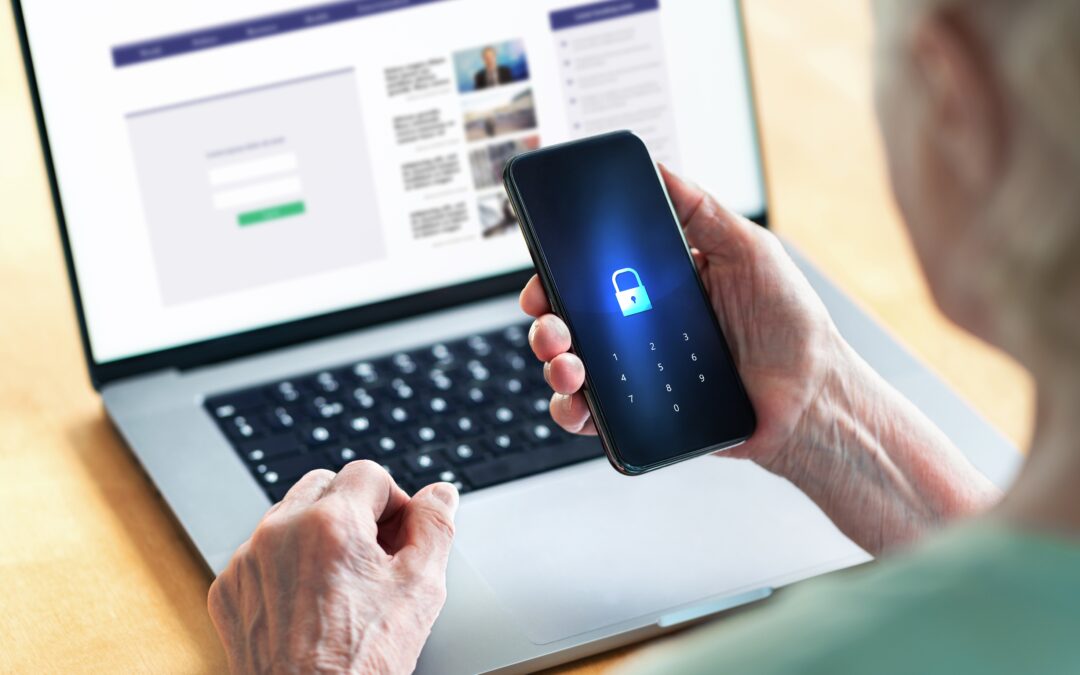The internet is an incredible tool for staying connected, informed, and entertained, but it’s not without
its risks—especially for seniors. Cybercriminals often target older adults with scams, phony emails, and
other online threats. Staying safe online doesn’t require technical expertise—just a little awareness and
a few simple precautions.
The Seniors Helping Seniors® team believes in empowering seniors to embrace technology without fear.
That’s why we’ve compiled this comprehensive guide to cybersecurity. Whether it’s creating strong
passwords, avoiding suspicious links, or using antivirus software, our expert tips are designed to keep
your personal information secure and your mind at ease. Keep reading to discover six easy ways to
protect yourself on the internet.
Cybersecurity Tips for Seniors to Stay Safe Online
Use Strong and Unique Passwords
Reusing the same password across websites makes it easier for hackers to access your private
information. Protecting your online accounts starts with creating a complex password for each site you
regularly visit. Aim for at least 8 characters with symbols like #, $, and %, avoid easy guesses like names
or birthdays.
If it’s too difficult to remember each individual password, use a secure password manager built into your
browser. Your Seniors Helping Seniors® caregiver can help you set one up for added peace of mind.
Enable Two-Factor Authentication
Adding an extra layer of protection to your online accounts is easy with two-factor authentication. This
security feature requires a second step—like entering a code sent to your phone or email—along with
your password. Even if someone steals your password, two-factor authentication keeps your account
secure. It’s simple to set up and can save you from major headaches down the road.
Be Cautious with Emails and Links
Not every email is what it seems. Watch out for messages asking for personal details or links to
unfamiliar websites—they could be phishing scams. Always verify the sender’s address and think twice
before clicking.
Use Antivirus Software and Keep It Updated
Antivirus software acts as your first line of defense against malware, viruses, and other cyber threats.
Downloading trusted security programs onto your computer automatically scans online websites for
risks and alerts you of potential breaches. Regular updates protect against the latest threats, so set
them to automatic.
Be Careful with Downloads
Downloading files from the internet can be risky if you’re not sure of the source. Avoid downloading
attachments or programs from unfamiliar websites or emails, as they could contain harmful viruses.
Stick to reputable sites and always double-check before clicking “download.” If you’re unsure, ask for
help.
Educate Yourself and Stay Updated
Cybersecurity threats evolve constantly, but staying informed can help you stay ahead. Take time to
learn about common scams, new technologies, and best practices for protecting your information.
Websites like the Federal Trade Commission (FTC) offer helpful tips for staying safe online. Your Seniors
Helping Seniors® caregiver can also help you stay safe and informed.
By implementing the simple cybersecurity tips outlined in this blog—like enabling two-factor
authentication, using strong passwords, and staying cautious with downloads— you can enjoy all the
benefits of technology while mitigating the risks. Protecting your personal information is an ongoing
process, but with the right tools and support, it’s entirely manageable.
The Seniors Helping Seniors® family is dedicated to helping older adults embrace technology with ease
and safety. Our caregivers are here to provide personalized support, whether it’s setting up security
features or answering your online safety questions. Together, we can ensure your time online is safe,
secure, and stress-free.

